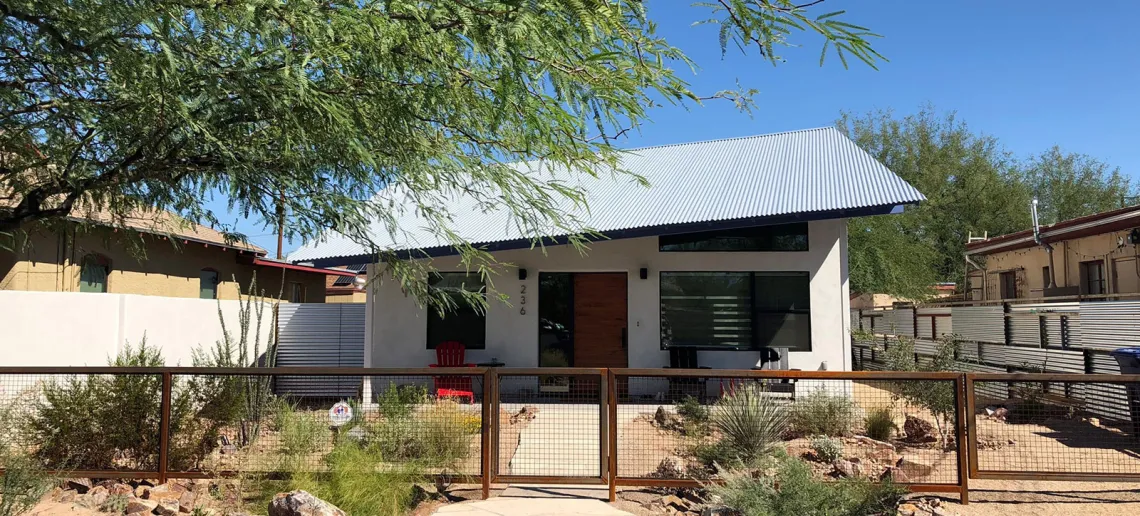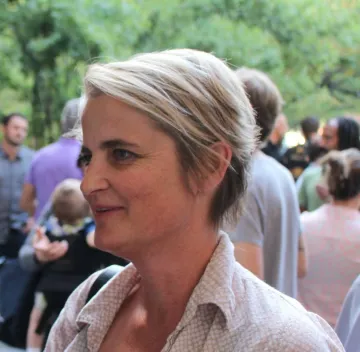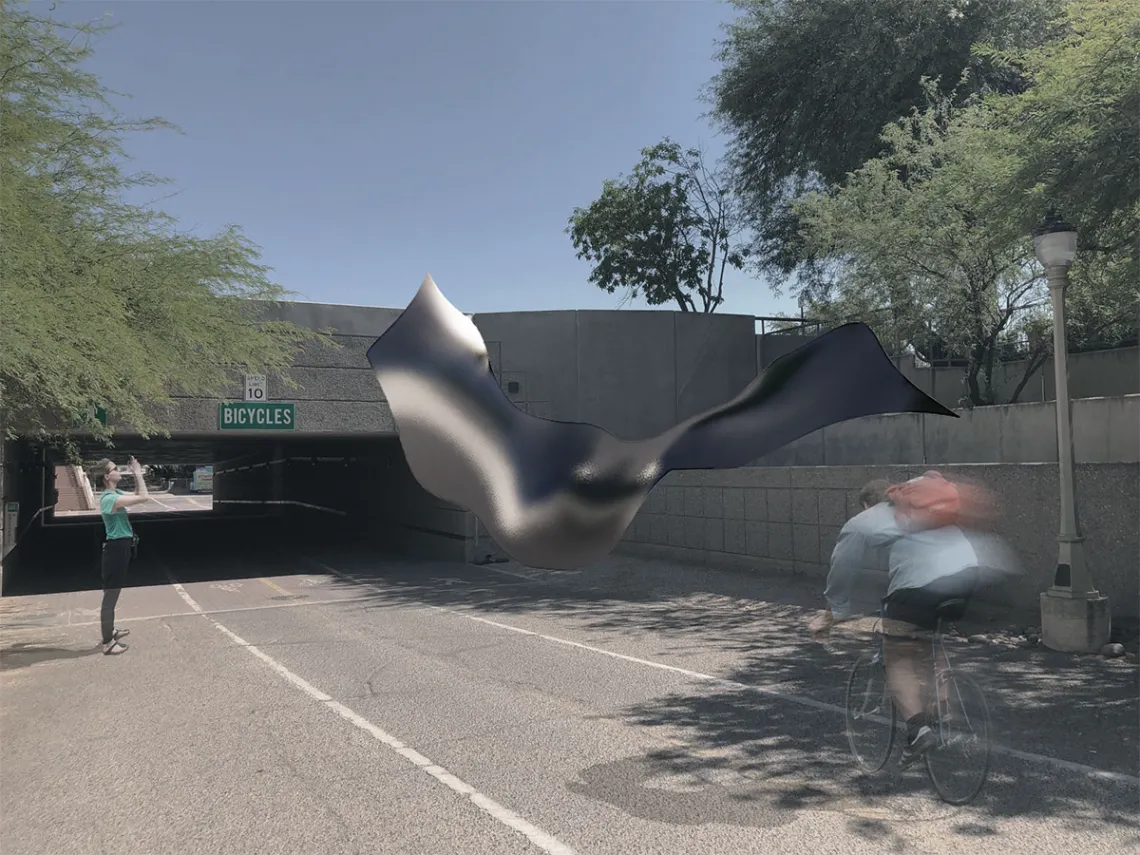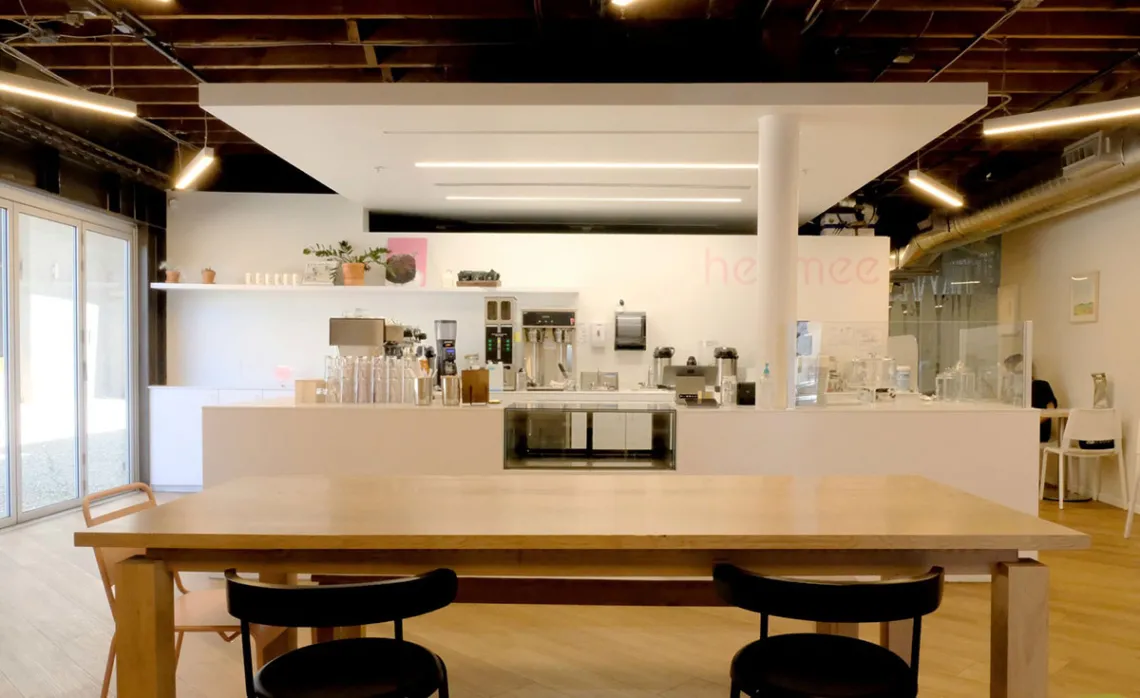Challenging the Norm: Susannah Dickinson, Associate Professor of Architecture

Speculative infill house project on University Boulevard in Tucson, by Susannah Dickinson, with former student Karen Costello.
Eight Questions with Susannah Dickinson, Associate Professor of Architecture and Chair, Master of Science in Architecture Urban Design Program
“I think academic environments should be leading the way in challenging the norm and speculating on ways forward for the environment and society.”

What brought you to the College of Architecture, Planning and Landscape Architecture?
I joined CAPLA in Fall 2009, mainly as a desire for a shift from full-time practice and living in New York City.
What is your current research and what most excites you about your areas of focus?
My current research seeks to tie together philosophies of multi-scale complexity theory and biomimetics with the goal of bringing more sustainable (environmental, social and economic), diverse, aesthetic futures. On a smaller, more material scale I’ve recently been part of a collaboration with the Steward Observatory, looking at ways of developing their low-cost method of double-curving metal panels for satellites, for more architectural applications.
Tell us a bit about your service work.
I enjoy having a voice on School of Architecture committees, as there are some opportunities for bottom-up direction. I’ve also just started a new role on the City of Tucson Design Review Board, so am excited to see how that pans out.
You came to CAPLA after being a full-time architect. Are you practicing again?
I just started a small practice a few years ago, and have done a few projects in Tucson. After several years not practicing it has been a nice balance and reminder to have to deal with real-world constraints again.

Proposed metal facade installation on the University of Arizona campus. Image credit: B Arch student Sam Owen, part of a collaborative design team with the UA Steward Observatory, led by Senior Research Associate Justin Hyatt.
What are you currently teaching, and what do you enjoy most about teaching?
This fall I am teaching two design communication classes and teaching a new graduate and undergraduate option studio, Climate Change and Design, with Associate Professor Aletheia Ida. I enjoy exposing students to current, critical schools of thought and design methodologies, as I think this can empower them to really be creative, in a smart way, and to speculate on how we can improve the current status quo. It is great to see our students realize their potentials.
How do you bring your research, service and practice into your teaching?
That’s a hard one, as they are all so integrated. I suppose my personal research, hopefully, keeps me on the cutting edge of what is going on, so I can keep my classes updated and relevant. The ability to practice and do research in terms of scholarship helps me to be well-rounded and contribute to student growth on multiple levels. I think service is important as a reminder to be collaborative with my community, peers and students and to give back some of the privilege I have had in my life.
Beyond your research, service and practice, what are your passions?
I enjoy traveling and seeing the world and life first hand. I think this comes out of a love of the landscape, built and natural. One of the key design issues for me is the relationship of buildings to landscape. My favorite hobby is pottering around my historic market-turned-house I am renovating and in my garden growing my desert plants.

HeeMee Café, an interior tenant improvement project in downtown Tucson, that was completed by Susannah Dickinson with two ex-students, Karen Costello and David Kim
What does the CAPLA experience mean for you?
I have found it more fulfilling than full-time practice, maybe as I was in fairly traditional models of working for clients? It feels on the one hand an opportunity for personal growth and lifelong learning, but also a chance to give back something to the next generation of architects. I think academic environments should be leading the way in challenging the norm and speculating on ways forward for the environment and society. It gets intense at times during the semester, but it is great to be part of this discourse and hopefully help our students have fulfilling lives.
To learn more, view Susannah Dickinson's faculty page.



